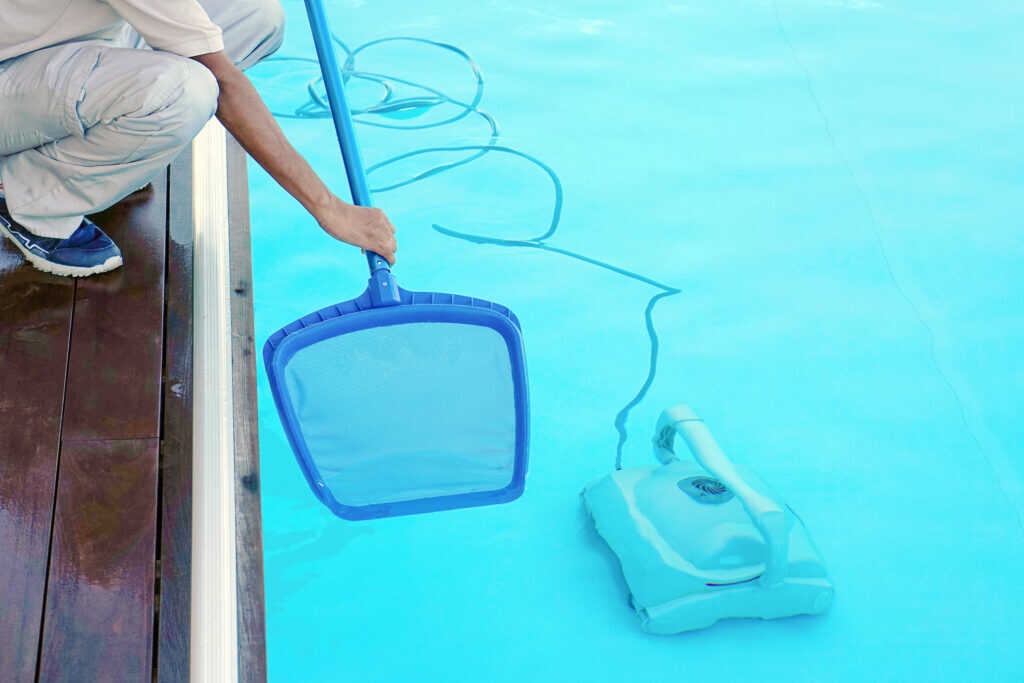An in-depth look at the latest data on water conservation in pool services and how businesses can adapt to these insights for sustainable practices.
What the Latest Data Says About Water Conservation in Pool Services
As the global conversation around sustainability intensifies, water conservation has become a critical topic, especially in industries that require significant water usage, like pool services. Recent research indicates that pool service providers are uniquely positioned to lead the charge for more sustainable practices in water usage. This article will delve into the latest data regarding water conservation in pool services, explore best practices, and examine how businesses can implement these insights to promote sustainable operations.
Water conservation is not just an environmental necessity; it’s also becoming a key concern for many pool service companies. With increasing regulations and consumer awareness around the impact of water usage, pool service providers must adapt their practices to align with these new expectations. This blog post will cover essential insights into current water conservation strategies, examine innovative technologies, and provide actionable recommendations for pool service businesses.
In addition to the ecological benefits, businesses that emphasize water conservation can also improve their bottom line. Implementing efficient practices can reduce costs, enhance brand reputation, and attract a new customer base that values sustainability. Overall, this article will provide a comprehensive overview of the current landscape of water conservation in the pool service industry and offer a roadmap for businesses looking to make impactful changes.
The Importance of Water Conservation in Pool Services
Water conservation in pool services is an urgent concern given the vast amounts of water pools consume, not only during filling but also through evaporation, backwashing, and maintenance. According to the latest data, a standard residential pool can lose several thousand gallons of water annually due to evaporation alone, exacerbating the need for effective conservation practices.
Moreover, states facing drought conditions have begun implementing stricter regulations regarding pool water usage. For example, California has enforced limitations on water use that directly affect pool owners and service providers. This regulatory environment necessitates innovative approaches to water management and conservation, making it essential for pool service providers to stay informed about best practices and technological advancements.
By prioritizing water conservation, pool service businesses can not only comply with regulations but also contribute positively to their local communities and the environment. This includes adopting practices such as using pool covers to reduce evaporation, optimizing cleaning methods, and implementing advanced filtration systems that minimize water loss.
Innovative Technologies for Water Conservation
Recent technological innovations are helping pool service providers enhance their water conservation efforts. One notable development is the integration of smart pool management systems, which allow for real-time monitoring of water levels, chemical balance, and filtration efficiency. These systems can help technicians identify leaks and other issues quickly, thereby reducing water wastage.
Additionally, automated pool covers have become an integral tool for reducing evaporation. According to studies, using a pool cover can minimize water loss by up to 90%. This not only conserves water but also maintains pool temperature, reducing heating costs and chemical usage.
Another innovative approach is the adoption of advanced filtration technologies, such as sand and diatomaceous earth filters, which require less water for backwashing compared to traditional systems. By switching to these more efficient technologies, pool service companies can significantly reduce water consumption during routine maintenance.
Best Practices for Pool Water Conservation
Implementing best practices for water conservation can enhance operational efficiency and position pool service businesses as leaders in sustainability. Here are several actionable strategies:
- Use Pool Covers: Encourage clients to use pool covers regularly to minimize evaporation and reduce the need for re-filling the pool.
- Regular Maintenance: Schedule regular maintenance checks to identify leaks early and ensure efficient operation of pumps and filters.
- Educate Clients: Provide clients with tips on water conservation, such as adjusting pool water levels and using eco-friendly cleaning products.
- Implement Smart Technology: Use smart pool management systems to monitor water levels and chemical balance efficiently.
By following these practices, pool service providers can significantly reduce their water usage while also enhancing their service offerings. This proactive approach not only showcases a commitment to sustainability but also positions the business favorably in a competitive market.
Case Studies of Successful Water Conservation Efforts
Numerous pool service businesses have successfully implemented water conservation methods, leading to significant reductions in water usage. For instance, a pool service company in Phoenix adopted a combination of smart technology and educational outreach to their clients. By installing smart water management systems and providing regular workshops on water conservation, they reduced their overall water usage by 30% within the first year.
Another example can be found in Florida, where a pool maintenance company utilized automated pool covers for their clients’ pools. This not only led to a substantial decrease in water evaporation but also increased customer satisfaction due to lower chemical costs and energy savings. These case studies exemplify how adopting water conservation strategies can lead to both environmental benefits and improved business outcomes.
These examples highlight the potential to significantly improve water conservation in the pool service industry through innovative practices and technologies. As more companies adopt similar methods, the collective impact on water conservation efforts could be substantial.
Regulatory Landscape and Its Impact on Pool Services
As awareness of environmental issues grows, government agencies are increasingly taking action to regulate water usage in various industries, including pool services. For instance, some states have introduced mandatory water efficiency measures for pools, affecting how service providers operate.
Understanding the regulatory landscape is crucial for pool service providers, as noncompliance can lead to hefty fines and negative publicity. It’s essential for businesses to stay informed about local regulations and adjust their practices accordingly. By proactively adopting water-saving technologies and strategies, companies can not only comply with regulations but also position themselves as responsible and forward-thinking in their communities.
Moreover, collaboration with local governments can foster opportunities for pool service businesses to participate in water conservation initiatives that benefit their communities. Such partnerships can enhance brand reputation and open doors to new business opportunities.
How Pool Service Software Can Aid in Water Conservation
Utilizing software specifically designed for pool service management can play a significant role in enhancing water conservation efforts. For instance, [Pool Biller Software](https://ezpoolbiller.com/) offers features that allow service providers to track water usage, schedule maintenance efficiently, and enhance communication with clients.
With the ability to record service history and monitor pool conditions, businesses can quickly identify issues that might lead to excessive water loss. Furthermore, effective billing software can automate reminders for regular maintenance appointments, ensuring that clients are informed about the necessity of maintaining optimal pool conditions.
In addition to improving operational efficiencies, pool service software can also streamline administrative tasks, allowing professionals to focus on providing exceptional service while maintaining a commitment to water conservation.
Conclusion
Water conservation in pool services is both an environmental imperative and a business opportunity. By adopting innovative technologies, implementing best practices, and remaining informed about regulatory changes, pool service companies can significantly reduce their water usage while enhancing their operational efficiencies.
As the demand for sustainable practices continues to grow, businesses that prioritize water conservation will not only comply with regulations but also attract a more environmentally conscious customer base. The future of pool services is not just about maintaining pools efficiently; it’s about leading the charge toward a more sustainable industry.
Take the first step today by integrating water conservation practices into your operations and exploring solutions like [Pool Biller Software](https://ezpoolbiller.com/) to streamline your billing and service processes. Together, we can make a positive impact on our water resources while ensuring the longevity of the pool service industry.




